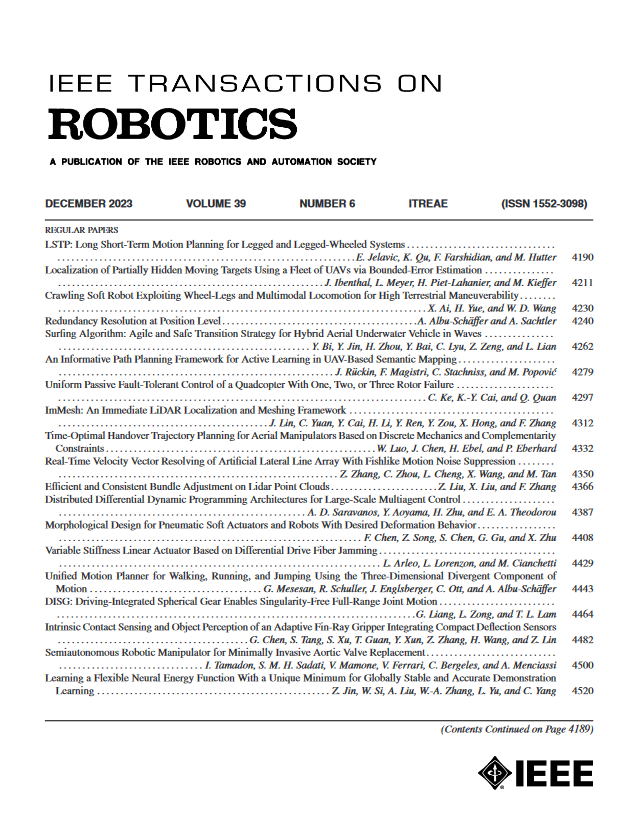Toward Efficient MPPI Trajectory Generation With Unscented Guidance: U-MPPI Control Strategy
IF 9.4
1区 计算机科学
Q1 ROBOTICS
引用次数: 0
Abstract
The classical model predictive path integral (MPPI) control framework, while effective in many applications, lacks reliable safety features due to its reliance on a无气味导引下高效MPPI轨迹生成:U-MPPI控制策略
本文章由计算机程序翻译,如有差异,请以英文原文为准。
求助全文
约1分钟内获得全文
求助全文
来源期刊

IEEE Transactions on Robotics
工程技术-机器人学
CiteScore
14.90
自引率
5.10%
发文量
259
审稿时长
6.0 months
期刊介绍:
The IEEE Transactions on Robotics (T-RO) is dedicated to publishing fundamental papers covering all facets of robotics, drawing on interdisciplinary approaches from computer science, control systems, electrical engineering, mathematics, mechanical engineering, and beyond. From industrial applications to service and personal assistants, surgical operations to space, underwater, and remote exploration, robots and intelligent machines play pivotal roles across various domains, including entertainment, safety, search and rescue, military applications, agriculture, and intelligent vehicles.
Special emphasis is placed on intelligent machines and systems designed for unstructured environments, where a significant portion of the environment remains unknown and beyond direct sensing or control.
 求助内容:
求助内容: 应助结果提醒方式:
应助结果提醒方式:


